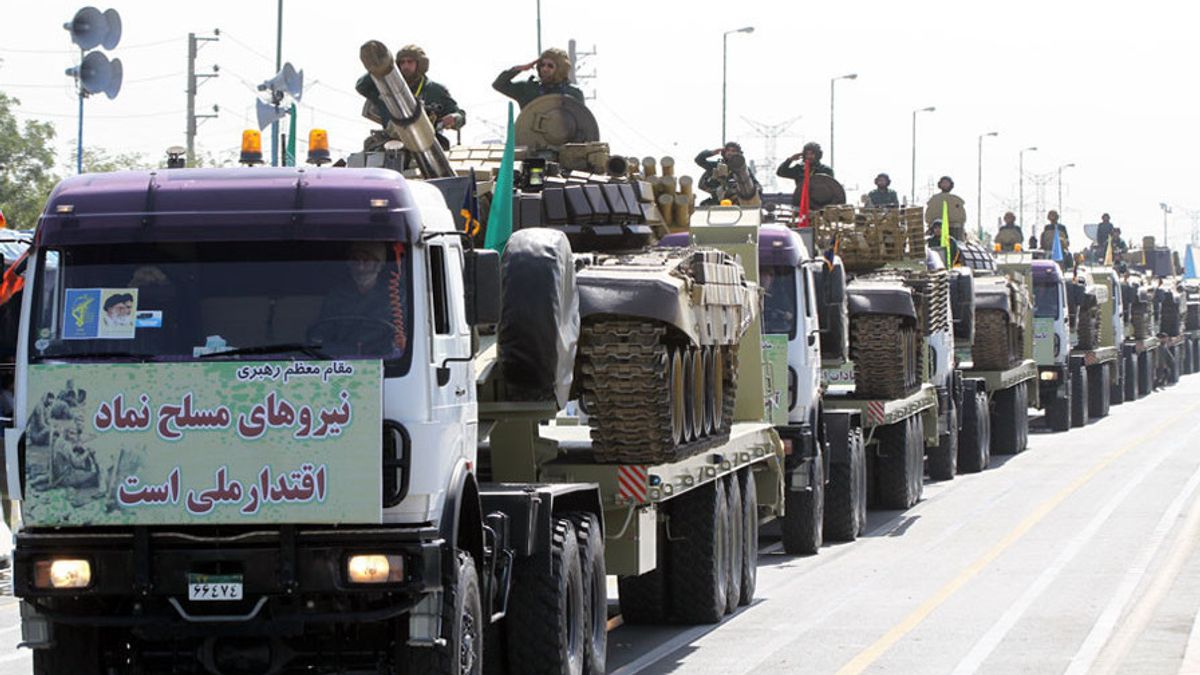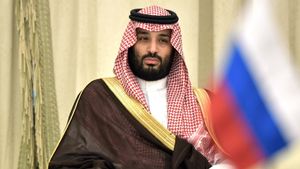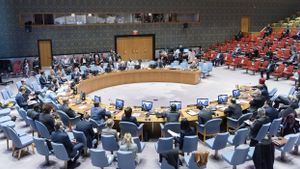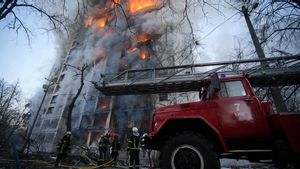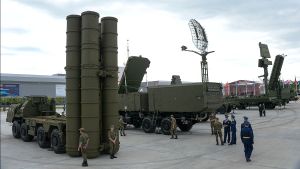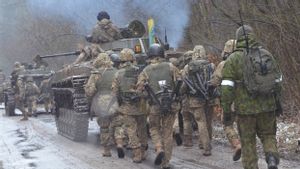JAKARTA - The United States is considering removing Iran's elite Islamic Revolutionary Guard Corps (IRGC) or Revolutionary Guard from a foreign terrorist blacklist, in exchange for Iran to "control" its troops and reduce escalation, while Israel is opposed and worried.
The United States is considering removing Iran's Revolutionary Guards from a blacklist of terrorist organizations, in exchange for Iran's assurances about reining in elite forces, a source familiar with the matter said on Wednesday.
The source said Washington had yet to decide what might be an acceptable commitment from Tehran in exchange for such a move, contrary to former President Donald Trump's 2019 decision, drawing sharp criticism from Republicans.
The move is the first time Washington has officially labeled part of another sovereign government a terrorist group.
The Islamic Revolutionary Guard Corps (IRGC) is a powerful faction in Iran that controls the business empire, elite armed forces and intelligence services Washington accuses of carrying out a global terrorist campaign.
The source, who spoke on condition of anonymity, said President Biden's administration was considering whether to drop the terrorist designation "in exchange for some kind of Iranian commitment and/or steps, in connection with other regional or IRGC activities," Reuters reported March 17.
The Biden administration's consideration of such a swap was first reported by Axios, citing Israeli and US sources.

Sources said the cancellation of the designation was one of the final and most vexing issues in broader indirect talks about reviving the 2015 nuclear deal on Iran.
Asked about the possibility of removing the IRGC from the US terrorism list, US State Department spokesman Ned Price declined to comment other than saying the removal was at the heart of negotiations to revive the nuclear deal.
Last week an Iranian official said removing the IRGC from the blacklist had been discussed since June, but the matter became more complicated after Ebrahim Raisi was elected president of Iran last summer.
The Iranian official, who spoke on condition of anonymity, said the United States had made clear "they can't remove it without major concessions from Iran," a stance he said Iran's top nuclear negotiator, Ali Bagheri Kani, had rejected.
Meanwhile, the IRGC's political influence in Iran's complex power structure has increased since the election of President Raisi, who took office in August and whose government includes dozens of Revolutionary Guard commanders.
Separately, according to the Times of Israel, Israeli officials said Washington had informed Jerusalem of these plans, but no decision had been made.
Israel reportedly opposes the idea, concerned that the IRGC's promise to govern its activities does not include explicit reference to action against US allies in the region, such as Israel.
According to Axios, former US Vice President Mike Pence told Israeli officials about the possible move during a visit earlier this month. He said the IRGC would only commit not to harm Americans. But, the White House told Israel, the latter idea was briefly considered and ruled out.
The State Department told Axios no decision had been made on the IRGC's designation and "any speculation to the contrary is completely uninformed."
Moreover, the official said that the IRGC will remain on a separate terror list and will be subject to various other sanctions.
VOIR éGALEMENT:
Another official told the site, the maximum pressure sanctions by the Trump administration, which are included in the IRGC list, are a "clear failure", as they only lead to Iran increasing its nuclear activities and malicious actions in the region.
To note, the furore about the possible delisting of the IRGC made headlines last month as well. Foreign Minister Yair Lapid opposed the idea on the spot, saying, "Every sane person should talk to the government about this and tell them, this is wrong, don't do that."
"They are now asking to release the biggest terrorist organization in the world," Prime Minister Naftali Bennett said of the Revolutionary Guards.
The English, Chinese, Japanese, Arabic, and French versions are automatically generated by the AI. So there may still be inaccuracies in translating, please always see Indonesian as our main language. (system supported by DigitalSiber.id)
